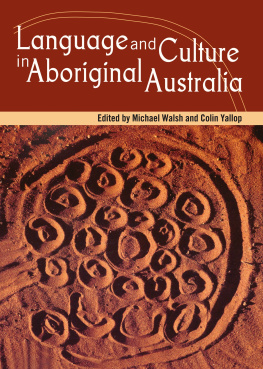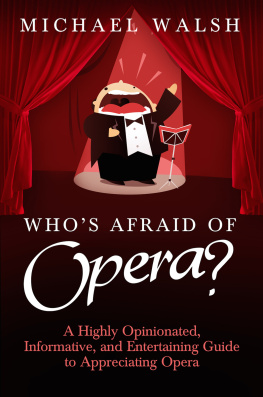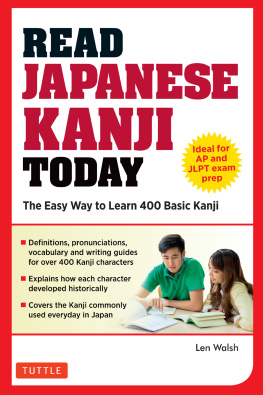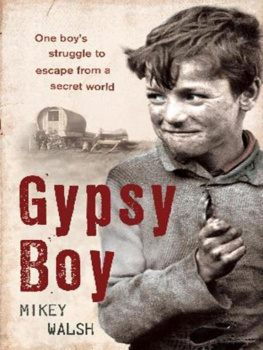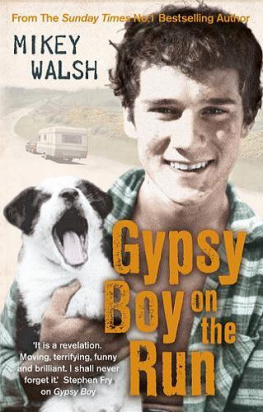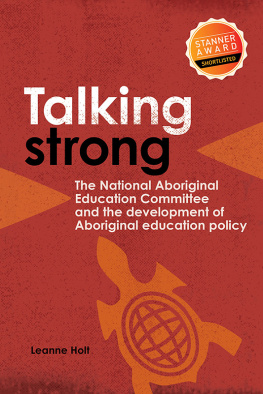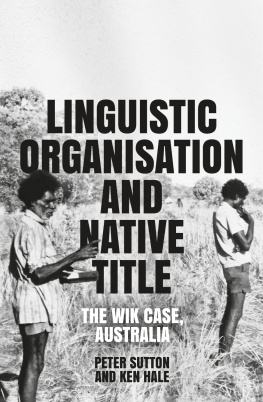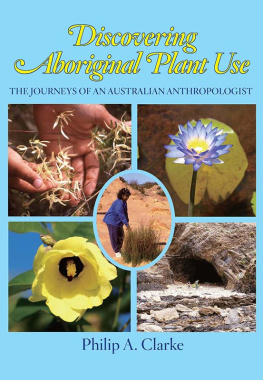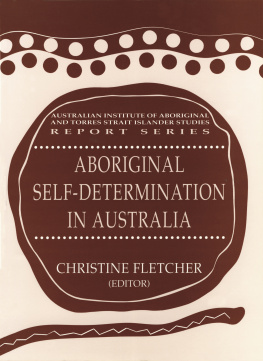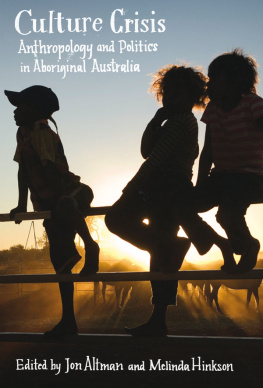Walsh - Language and Culture in Aboriginal Australia
Here you can read online Walsh - Language and Culture in Aboriginal Australia full text of the book (entire story) in english for free. Download pdf and epub, get meaning, cover and reviews about this ebook. City: Australia, year: 2011;2012, publisher: Aboriginal Studies Press, genre: Children. Description of the work, (preface) as well as reviews are available. Best literature library LitArk.com created for fans of good reading and offers a wide selection of genres:
Romance novel
Science fiction
Adventure
Detective
Science
History
Home and family
Prose
Art
Politics
Computer
Non-fiction
Religion
Business
Children
Humor
Choose a favorite category and find really read worthwhile books. Enjoy immersion in the world of imagination, feel the emotions of the characters or learn something new for yourself, make an fascinating discovery.
Language and Culture in Aboriginal Australia: summary, description and annotation
We offer to read an annotation, description, summary or preface (depends on what the author of the book "Language and Culture in Aboriginal Australia" wrote himself). If you haven't found the necessary information about the book — write in the comments, we will try to find it.
How many Aboriginal languages are there? Where are they spoken? How are they learned by children? Are there dictionaries of Aboriginal languages? What is the connection between the land, people and language in Aboriginal Australia? This book answers these questions and more by providing a series of studies of different aspects of language and culture in different parts of Aboriginal Australia.
Language and Culture in Aboriginal Australia — read online for free the complete book (whole text) full work
Below is the text of the book, divided by pages. System saving the place of the last page read, allows you to conveniently read the book "Language and Culture in Aboriginal Australia" online for free, without having to search again every time where you left off. Put a bookmark, and you can go to the page where you finished reading at any time.
Font size:
Interval:
Bookmark:
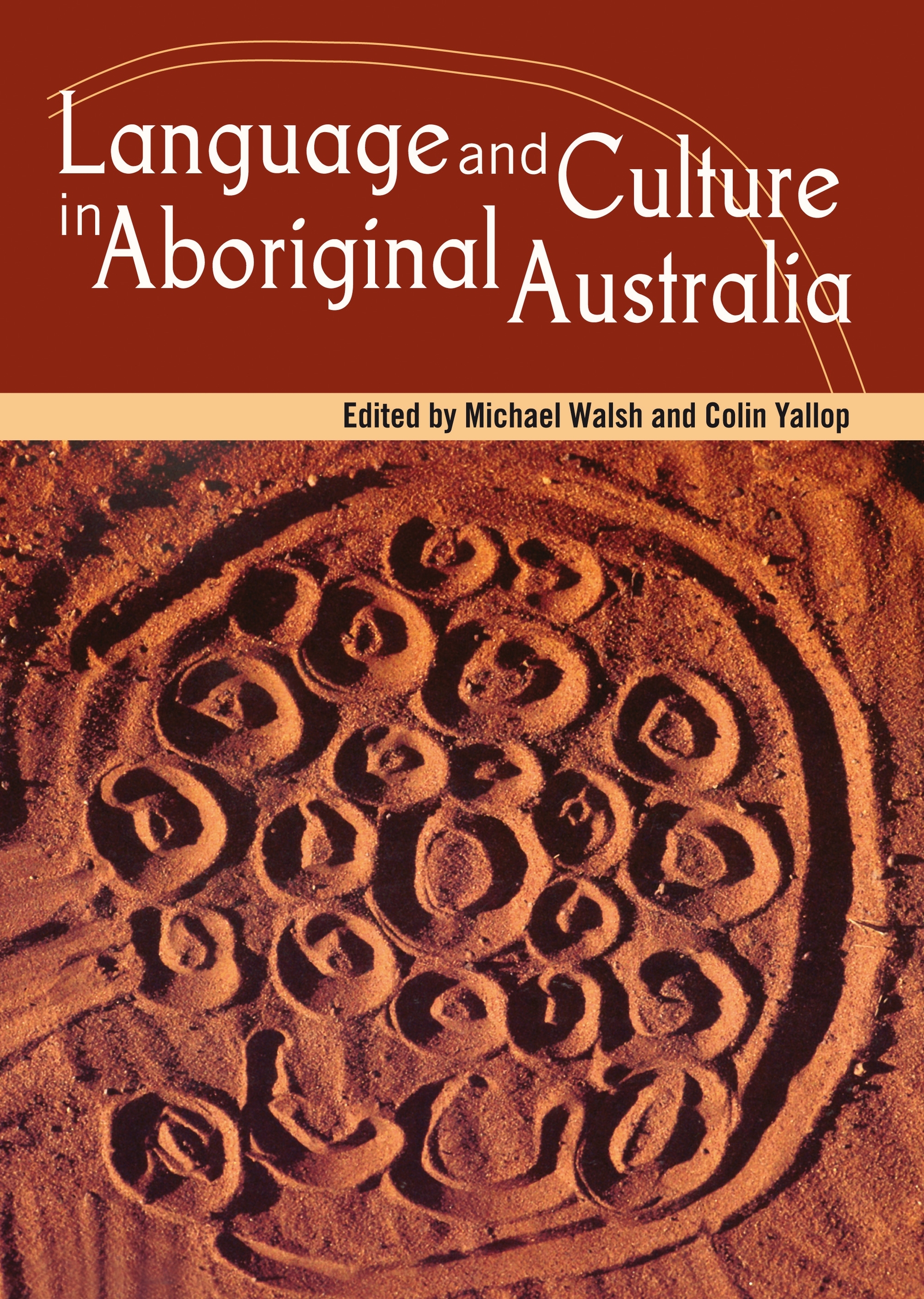
BARRY ALPHER has recently been an editor for Mouton de Gruyter publishers in Berlin. He has taught linguistics and anthropology for varying periods at Arizona State University, the School of Australian Linguistics in Darwin, Sydney University, the State University of New York at Albany, and Cornell University; has acted as Head of the School of Australian Linguistics; has done applied linguistics in the employ of the Coalition of Indian Controlled School Boards in Denver; has worked with Puerto Rican migrant labourers at the Labor Education Center, Rutgers University, New Jersey; and acted as consultant in Aboriginal land claim work in Central Australia. He has compiled one of the most comprehensive dictionaries of an Australian language: Yir-Yoront Lexicon: Sketch and Dictionary of an Australian Language (Mouton de Gruyter, Berlin 1991).
EDITH BAVIN is a Senior Lecturer in Linguistics at La Trobe University. She received her PhD in linguistics from the State University of New York at Buffalo in 1980. Since moving to Australia in 1981, her primary research has been in cross-linguistic aspects of first language acquisition, in particular the acquisition of Warlpiri. Edith is currently doing cross-linguistic research with children from a number of linguistic backgrounds, as well as writing a book on first language acquisition from a cross-linguistic perspective. Other research interests include the West Nilotic languages, and also language change.
PAUL BLACK is a Senior Lecturer in Applied Linguistics in the Education Faculty of Northern Territory University. An American by birth, he came to Australia in 1974 after receiving a Yale doctorate involving linguistic research in Ethiopia. Before assuming his current position in 1990 he worked as a research fellow and later a linguistic archivist for the Australian Institute of Aboriginal and Torres Strait Islander Studies (AIATSIS) in Canberra, and then spent eight years working with Aboriginal literacy workers, interpreters and teachers at the former School of Australian Linguistics (in Batchelor, Northern Territory). From 1991 to early 1993 he was a visiting lecturer in English at Waseda University in Tokyo.
MICHAEL CHRISTIE is a Senior Lecturer in Adult Education at the Northern Territory University. He has a mixed academic background. He majored in English and History but concentrated for his doctoral degree on race relations between Aborigines and colonists in early Victoria. Since then he has worked as an English language teacher (while travelling), as a freelance writer, a potter and a university lecturer. During 1991 he was a guest lecturer in the English Department at Stockholm University.
TERRY CROWLEY gained his PhD at the Australian National University, and now lectures in linguistics at the University of Waikato in New Zealand, and before this he taught at the University of the South Pacific and the University of Papua New Guinea. His current research interests cover Pacific pidgins and creoles, concentrating on Melanesian Pidgin, as well as Oceanic languages. He has also published on the Aboriginal languages of northern New South Wales, as well as Cape York Peninsula in northern Queensland.
DIANA EADES has been working with speakers of Aboriginal English since 1973, mainly in Queensland and New South Wales. She is particularly interested in how Aboriginal culture is continued in the way that Aboriginal people use English. In recent years she has applied her research to a number of areas of cross-cultural communication, particularly in education and the law. Currently she lectures in linguistics at the University of New England, Armidale.
JOHN HARRIS spent many years teaching in Aboriginal communities in the Northern Territory. His doctoral studies dealt with the origin of Kriol. He is now Warden of New College at the University of New South Wales. He is the author of One Blood, 200 Years of Aboriginal Encounter with Christianity: A Story of Hope (Albatross, Sydney, 1990) the award-winning history of Aborigines and the Christian Church.
MARI RHYDWEN is completing her PhD thesis on Kriol literacy at Sydney University. In 1992 she completed a report on the extent of the use of Kriol in the Northern Territory and its implications for access to English literacy. She has worked for several years on Kriol and Aboriginal English in the Northern Territory.
ALAN RUMSEY is a senior lecturer in anthropology at the University of Sydney. He is interested in the relationship between language and other aspects of social life, and has been studying Aboriginal languages of the Kimberley region of Western Australia since 1975.
MARGARET SHARPE lectures in sociolinguistics in the Department of Aboriginal and Multicultural Studies, University of New England. She has spent her academic life studying the Alawa and Bundjalung languages of the Northern Territory, northern New South Wales and southern Queensland; Kriol in the Northern Territory; and Aboriginal English in Queensland, Alice Springs and northern New South Wales. Since 1979 she has published three monographs and numerous articles and chapters on these languages, and a childrens novel based on her research in these areas.
JANE SIMPSON is presently teaching at the University of Sydney and is working on dictionaries of Kaurna and Warumungu. She has participated in the Warlpiri Dictionary Project and in establishing an archive of machine-readable dictionaries at the Australian Institute of Aboriginal and Torres Strait Islander Studies. She is the author of Warlpiri Morpho - Syntax: A Lexicalist Approach (Kluwer 1991).
JAKY TROY has concentrated her research in the area of language contact in Australia since 1788. In 1985 she completed a BA (Hons) at the University of Sydney in linguistic anthropology. Her thesis focused on early language contact in New South Wales, and was later published in a revised form as: Australian, Aboriginal Contact with the English Language in New South Wales: 1788 to 1845 (Pacific Linguistics, B-103. Canberra 1990). She is currently completing a PhD in the Research School of Pacific Studies at the Australian National University.
MICHAEL WALSH teaches linguistics and Aboriginal studies at the University of Sydney. He has carried out fieldwork on Aboriginal languages along the west coast of the Northern Territory since 1972. He has also provided anthropological documentation for a long-running land claim near Darwin.
COLIN YALLOP teaches English and linguistics at Macquarie University in Sydney. He has done linguistic field work in Central Australia and is the author of Australian Aboriginal Languages (Andr Deutsch, 1982).
Michael Walsh
I t is thought that around 250 distinct languages were spoken at first (significant) European contact in the late eighteenth century. Most of these languages would have had several dialects, so that the total number of named varieties would have run to many hundreds. This contradicts the still popular view that there is just one Aboriginal language, perhaps with a number of dialects.
It is difficult to be precise about the numbers of dialects and languages because the information available is often poor and terms like dialect and language can shade into each other. For the English language we can recognise dialects like Australian English, Canadian English, New Zealand English, and so on. The differences between these dialects may not be so great as to interfere with communication. But what of Scots English and Jamaican English? Here the differences may be sufficient to create difficulties in communication at least in the short term even though we refer to them as kinds of English. On the other hand, we also recognise forms of speech which are clearly separate languages, such as German and Spanish, Irish and Armenian or Hindi and Greek. Despite their current differences these languages all go back to a single ancestral language spoken thousands of years ago. In Aboriginal Australia there are languages which are clearly distinct, like Tiwi (from Bathurst and Melville Islands, off the north coast of Australia) and Pitjantjatjara (from the desert areas of South Australia and Western Australia). There are also forms of speech which share much the same grammar but differ in pronunciation and vocabulary just as various dialects of English do. Examples of such forms of speech are Gugada, Ngaanyatjarra, Luritja, Pintupi and Pitjantjatjara, which linguists have classified as belonging to the Western Desert Language. This was not a term used by the native speakers themselves any more than a cover term like the Scandinavian Language is used by speakers of closely related forms of speech like Danish and Norwegian. Danes and Norwegians feel that they have a separate language with a separate territory and that their language is a reflection of their group identity. The dialects of the Western Desert Language were spoken over a vast area of well over a million square kilometres in the Northern Territory, South Australia and Western Australia. Not surprisingly there would be difficulties in communication between speakers of dialects which were widely separated. Rumsey takes up questions of language, territory and group identity in Aboriginal Australia (in chapter 14).
Font size:
Interval:
Bookmark:
Similar books «Language and Culture in Aboriginal Australia»
Look at similar books to Language and Culture in Aboriginal Australia. We have selected literature similar in name and meaning in the hope of providing readers with more options to find new, interesting, not yet read works.
Discussion, reviews of the book Language and Culture in Aboriginal Australia and just readers' own opinions. Leave your comments, write what you think about the work, its meaning or the main characters. Specify what exactly you liked and what you didn't like, and why you think so.

